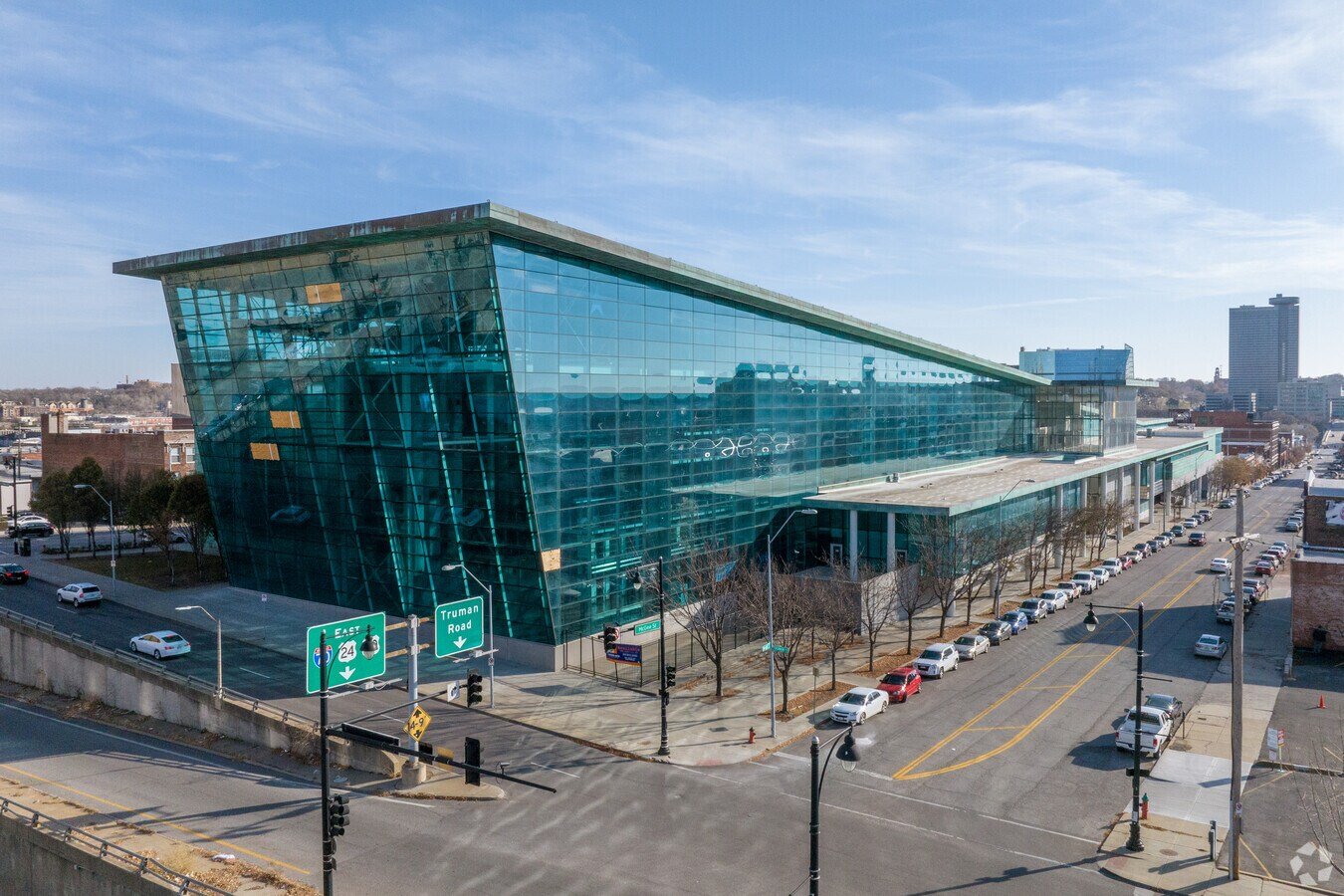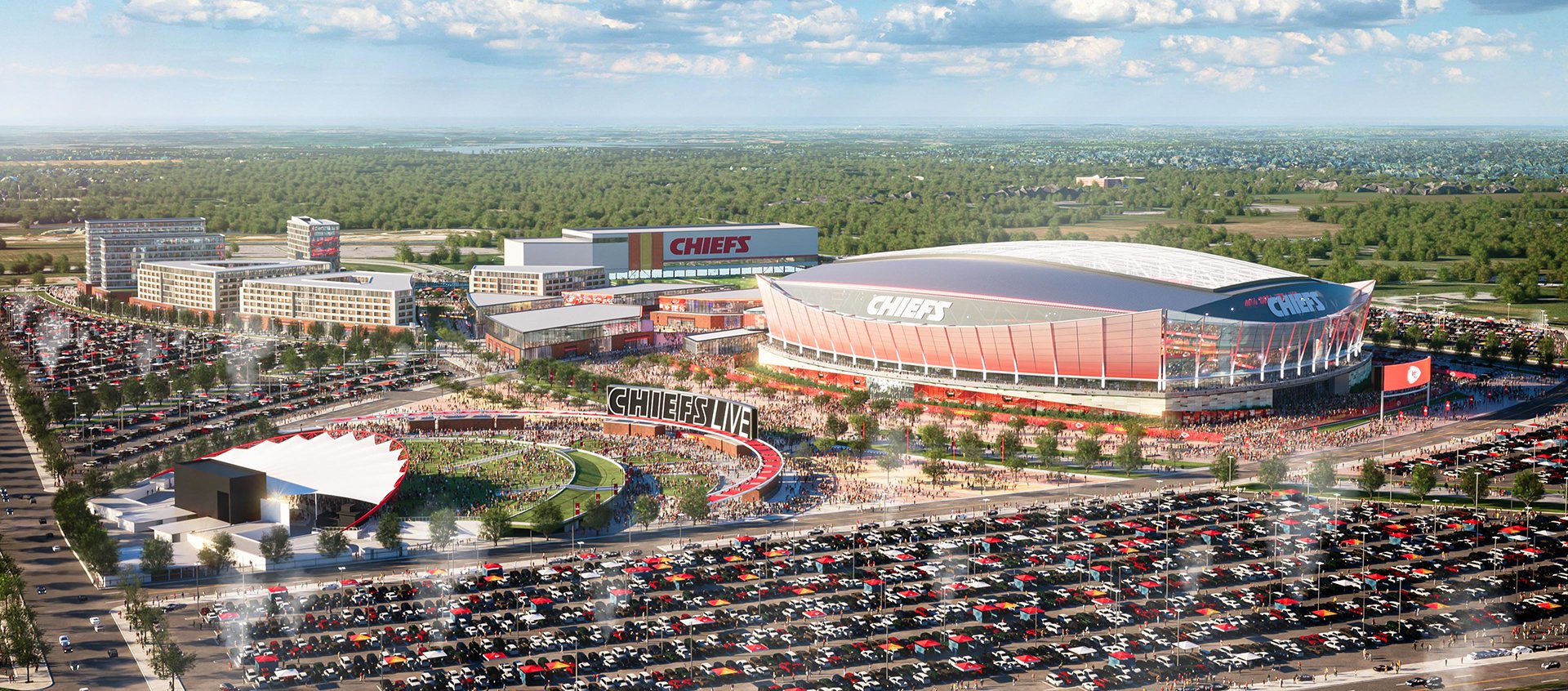Feature photo credit: Jacia Phillips | Arch Photo KC
Contegra Construction adds two distribution centers in KCK
REVERBerating in the KC Crossroads
Opening a multifamily community and a cocktail lounge during a pandemic presents a unique set of challenges, as told by panelists during last week’s CREW KC event.
The virtual presentation featured REVERB, a 14-story, 132-unit multifamily complex and The Mercury Room, a 800-SF cocktail lounge atop of REVERB, located at 18th and Walnut in the Crossroads Arts District.
Bri Swanson, REVERB community manager; Kyle Bennett, The Mercury Room general manager; Charles Rotter, staff architect at Burns & McDonnell; and Trevor Hoiland, design manager at Burns & McDonnell; joined moderator Andrea McClain, portfolio analyst at CrossFirst Bank, to discuss how the team was able to rise above the challenges of the project during a pandemic.
Developed by Copaken Brooks and managed by Asset Living, REVERB opened mid-August 2020; The Mercury Room soon followed, opening in mid-November 2020.
Swanson explained that REVERB is unique from other recent multifamily projects in that it only offers studio and one-bedroom units and provides its residents with no amenities, like a pool or a gym. Instead, residents have access to a mixed-use space on the 14th floor with conference and meeting rooms and the Mercury Room — all of which Swanson called “an extension to our residents’ homes.”
Hoiland said that in selecting the site, the developers wanted the project to be part of the Crossroads neighborhood.
“So many downtown apartment buildings have everything you need inside them so why move downtown and then just stay in your building? We really wanted people to not have a gym and not have a pool and not have some of these amenities you typically see because we want people out on the streets, to be part of the neighborhood and connecting with other tenants up the street. That was very, very intentional,” Hoiland said.
Swanson said that to supplement the community’s lack of amenities, Asset Living focused on providing residents with ways to get residents into the neighborhood, including providing residents with metal cards to present at nearby businesses for insider perks and discounts.
Swanson said the challenges of developing and delivering a high-end multifamily community with only studio and one bedroom units, no on-site amenities and a cocktail lounge open to the public during a pandemic were met through an innovative marketing plan, custom-built website and COVID-friendly seamless leasing and a virtual marketing outreach.
“When COVID interrupted previously established marketing plans, the Asset team quickly pivoted to creative practices such as partnerships with social media influencers to promote REVERB through what we call the ‘unboxing experience..’ We partnered with several local Kansas City influencers and invited these influencers to unbox promotional items and branded apparel on Instagram as well as attend private tours and share the REVERB experience with followers,” said Swanson.
Swanson said that the project was nearly 10 percent pre-leased without offering concessions prior to delivery. To date, REVERB is 20.77 percent occupied and 26.15 percent leased. Rents range from $1,149/mos for a studio unit to $3,325/mos for the largest one bedroom unit, which offers 1393 SF.
Construction of the project was well underway when the pandemic hit and there were not many delays. Holland said that when smaller job sites in the city were shut down, the REVERB project was able to pull from them to keep construction going.
Hoiland said that the project got its name from the energy on the streetcar, which also impacted the design of the building.
“As the building gets taller, those apartment units stretch out further towards the streetcar, towards Main Street - then it pulls back at the very top. So we really wanted to almost create a diagram of the soundwave that maybe you get from the energy on Main Street,” Hoiland said.
The Mercury Room currently accommodates approximately 20 guests to comply with COVID restrictions, but Bennett said it can sit approximately 32 guests when operating at full capacity.
Entry to The Mercury Room is by reservation only for two-hour periods. Guests are checked in by a host downstairs and notified by text when their table is ready. Reservations are being taken on a month-to-month basis and Bennett said The Mercury Room is booked through the end of the month. Bennett expects to retain the reservation system post-pandemic.
“We are a high-end cocktail bar, really focusing on the craft of making delicious cocktails and really offering a high-touch, elevated-style service not seen in the cocktail world,” said Bennett.
The Mercury Room has partnered with Michael Corvino from Corvino Supper Club & Tasting Room and is seeking other chefs to offer small bites to pair with the cocktails.
Colliers to lease, manage rebranded office building
$60 million 'The Residences at Galleria' to open in 2022
The Residences at Galleria, a $60 million multifamily complex located adjacent to the former Sprint World Headquarters in the Galleria 115 development in Overland Park, Kan., is set to begin construction this summer and slated to open in 2022.
The four-story, luxury apartment complex is included in the first phase of the 5-plus acre development by Block Real Estate Services, LLC (BRES). The $350 million Galleria mixed-use development master plan includes two apartment buildings, office space, retail and entertainment.
JLL Capital Markets (JLL) arranged $21 million in joint venture equity partnership with Hartford Investment Management Company (“HIMCO”) on behalf of BRES for the development of the 322-unit, Class-A, podium multi-housing community.
"We are excited to partner with HIMCO on this project, and, from the beginning of discussions with them, it was clear that we had a shared vision for the quality of this project and its high-demographics location within Overland Park” said Ken Block, BRES managing principal.
The Residences include 322 one-, two- and three-bedroom units and will average 927 SF. Features include high ceilings, large walk-in closets with custom shelving, high-end appliances and finishes, European-style cabinetry, outdoor terraces, in-unit laundry rooms with full-size washers and dryers, double-paned windows and more.
A hallmark of the new community, designed by Hoefer Wysocki, is the walkable lifestyle. Adjacent to the site is a thriving commercial corridor, multiple entertainment districts, theaters, and endless restaurant choices. Outdoor patios are linked to The Residences by walking trails that encircle greenspace, sitting areas, a rolling rock waterfall and dog park.
"We are very excited to work with Block Real Estate Services on the Galleria. This community will raise the bar on luxury living in the area,” said Hoefer Wysocki vice president and director of multifamily design, Chris Armer, AIA, NCARB.
The project will feature the best community amenities offered in the submarket and include a large resort-style swimming pool with shallow ledge features; pool deck with cabanas, hot tub, sports courts and water features; fitness center with Peloton bikes, massage therapy and virtual training; outdoor group fitness areas; clubhouse with fireplace, game room and social media room; executive business center; dog park and pet spa; and covered and surface parking.
“Galleria will be BRES’ most exciting project to date, building on our successful experiences with this high-end podium product, which allows for a large, outdoor amenity deck and other amenities that are unique in this market,” Block said.
The JLL capital markets debt placement team representing the borrower was led by executive managing director Jody Thornton, senior director Mark Erland, director Matt Benson and analyst Kellan Liem.
Other partners on the development team include Titan, Polsinelli and McClure.








